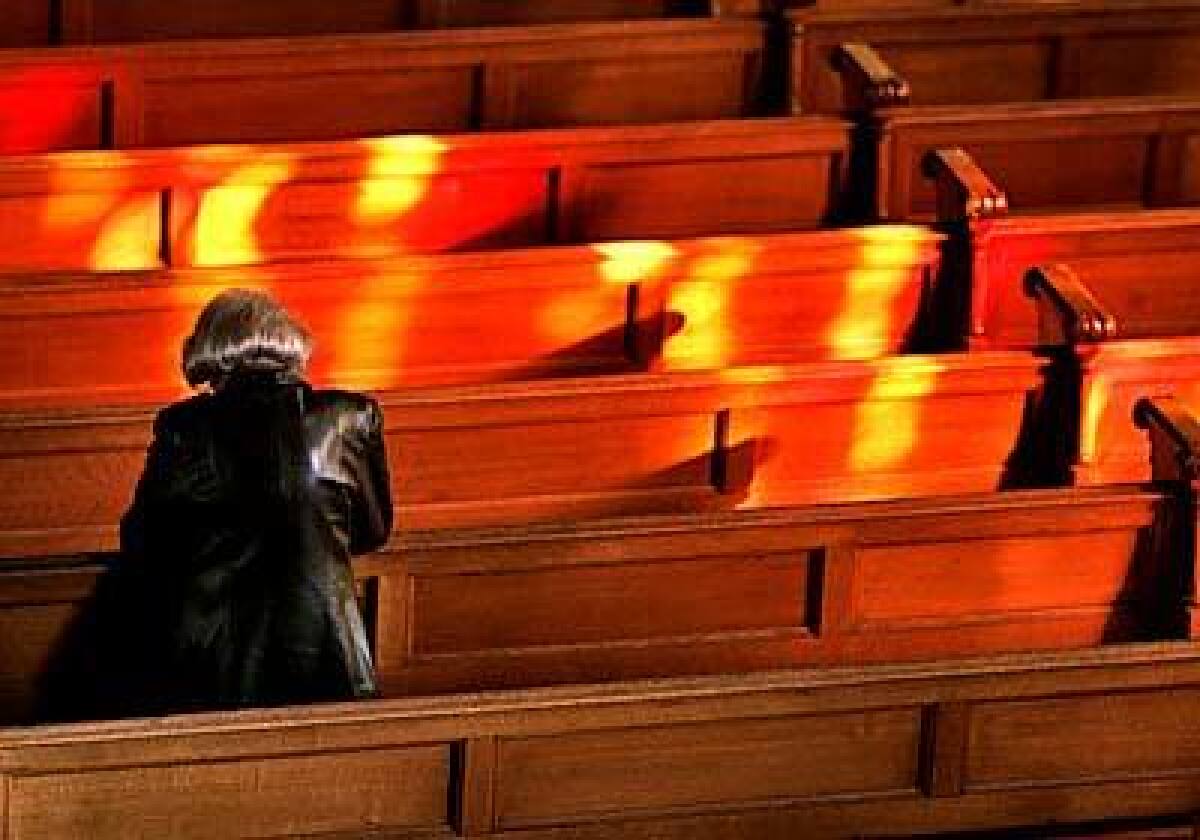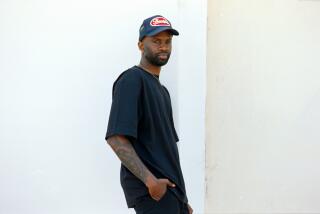Op-Ed: My father, my parish priest

- Share via
What would it feel like to have a father? When I entered Smith College in 1954, I had no idea. Adopted as a baby into a family of self-sufficient women in the mill town of Norwood, Mass., I was fatherless. Could you miss something you never had? I would begin to find out on Fathers’ Weekend, an annual Smith ritual.
My friends included me in their Fathers’ Weekend festivities and dinners at Wiggins Tavern, the favored local restaurant for special occasions. I was dazzled by their fathers. Well-turned-out New York financiers, businessmen, doctors, Texas oilmen, they were the finished products of the young men I met at mixers and on blind dates, and decidedly more intriguing than their younger counterparts.
Yes, I came to realize, I could miss the presence of a wise, loving father in my life. So when the Rev. Hippolyte Zawalich, beloved pastor of my hometown Polish Catholic parish and a longtime family friend, called to arrange to visit me at Smith, asking me to invite my friends for a dinner at Wiggins Tavern, I was delighted — and a bit nervous. How would Father Hip stand up in comparison with my friends’ fathers?
I needn’t have worried. Father Hip was a genial and experienced host. I remember, growing up, many festive Sunday breakfasts in his rectory after Mass. We were met at the door with the aroma of fresh coffee, which lured us to a big table loaded with eggs, bacon, ham, kielbasa and babka shared with family and friends. He was a storyteller, a lively conversationalist and a well-known and gifted after-dinner speaker in greater Boston.
He was also a frequent guest in our home, a rare male presence at gatherings of our mostly female relatives. I loved going with Father Hip to his fishing camp, and sometimes accompanied him on his trips to the markets in Boston’s North End, where vendors greeted him as a regular. Before holidays, we would head to the flower stalls so he could fill his church with flowers. He relished his role celebrating the Mass, the sacred reenactment of the Last Supper, just as I loved his relaxed hosting of our Sunday breakfasts.
For his Smith visit, Father Hip arrived characteristically laden with my favorite treats: chocolates, pound cake, crackers, cheeses, smoked oysters. We toured the campus. He sat in on a class and met the professor. At Wiggins Tavern, he was in his element hosting a table of young, bright women. He captivated everyone with his sense of humor, his interest in their lives and his ebullient presence. To this day my closest friends retain vivid memories of Father Hip. And me? I was proud of him, and proud to have returned their hospitality during Fathers’ Weekend.
It was only much later in my life that I realized Father Hip’s relationship to me was, indeed, a paternal one. He named his dinghy after me — the “Beamy Mimi.” He wrote a set of rules when I started dating: “All dates end at the Cinderella hour at your doorstep. Midnight!” In that first year at Smith, when my mother was concerned that my busy social life might threaten my scholarship, Father Hip set me straight. Every couple of weeks I got funny letters from him with suggestions on how to pace myself. Don’t worry about your fears, he wrote, offer them up to the Blessed Mother — and enjoy yourself.
He’d been a constant part of my life, and I adored him. But, well-trained by the rigid Irish nuns in my parochial school, I held him in awe as a priest, always feeling the distance of formality and respect for his position.
That dinner at Wiggins Tavern was the last time I saw Father Hip. During my final exams, he died of a heart attack. He was 47. His packed funeral, on a hot day in May, is seared in my memory — the feeling of devastation, a desolation I could hardly explain.
The next year at school, I walked the floors of my residence hall at night, experiencing the onset of what I came to know later as depression. I hid it and got on with college life. Days after commencement, I married a man much like my friends’ larger-than-life fathers. Neil was 11 years older, ambitious and charismatic. For the next 46 years I traveled the world with him, raising our three children, while hiding shameful bouts of depression.
When I was 35, my adoptive “sister” dropped a bomb. She told me that she had, in fact, given birth to me. As her pregnancy advanced, she’d gone to stay with relatives, and when I was born she placed me in foster care, after which I was legally adopted into my own family. My mother was relieved that, instead of being angry, I was overjoyed to learn the truth. I began to feel more firmly grounded in life.
And what of my father? Though I pressed her repeatedly, my mother wouldn’t tell me. She steadfastly refused to say more than that he was a businessman whose name she had forgotten.
After my mother’s death, 15 years after I’d learned who she was to me, her closest friend was amazed that I still did not know who my father was. “Oh, Mimi,” she said, “don’t make me be the one to tell you.” When I asked if he was someone I had known, she said yes. That’s when I understood. Who else could it have been? Father Hip had always been there, my guardian, my consoler, the host of that unforgettable dinner.
With this revelation, I was swept with a deep feeling of peace and serenity. For the second time, I had discovered that the person I most loved like a parent was indeed my parent. My relief may sound odd, but imagine you’ve spent your life wondering. What a gift it would be to learn the truth.
Was it Father Hip’s ebullience that carried me through depressions and the inevitable fallout of the secrets and lies surrounding my identity? It’s hard to say. But he did urge me to find courage within myself. His letter to me at Smith from October 1954 says: “God bless you and give you strength. I know you have it. Wait until you get rolling. Then you’ll show them. I love you.”
Mimi Bull is the author of “Celibacy, a Love Story: Memoir of a Catholic Priest’s Daughter.”
More to Read
A cure for the common opinion
Get thought-provoking perspectives with our weekly newsletter.
You may occasionally receive promotional content from the Los Angeles Times.










